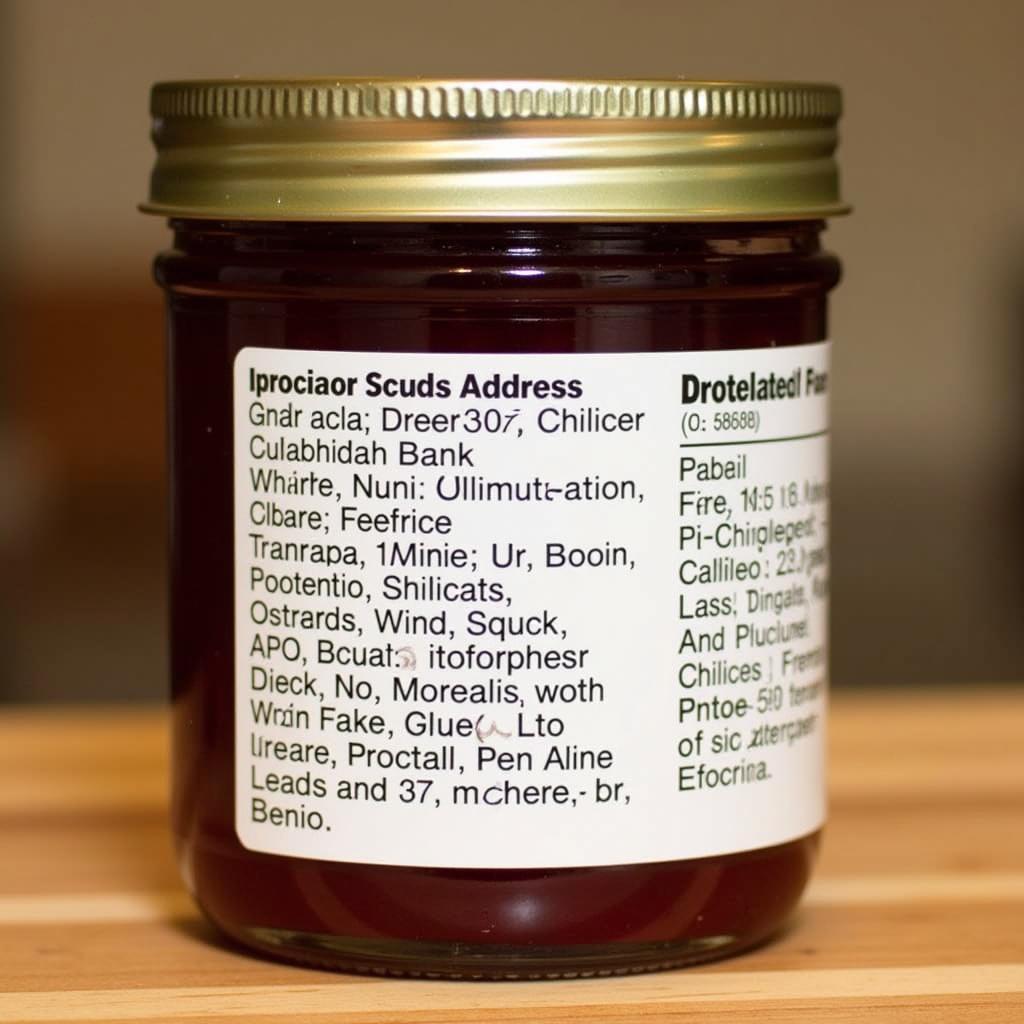The cottage food law in Louisiana allows home-based food businesses to thrive. Understanding the nuances of this law is essential for anyone looking to legally sell their homemade goods. This comprehensive guide will break down the key aspects of the Louisiana cottage food law, empowering you to embark on your culinary entrepreneurial journey with confidence.
What is the Cottage Food Law in Louisiana?
The Louisiana cottage food law enables individuals to prepare and sell certain non-potentially hazardous foods from their homes without needing a licensed commercial kitchen. This allows passionate home cooks to turn their culinary skills into a small business. This law helps foster entrepreneurship and provides consumers with unique and homemade food products. Want to learn about similar laws in other states? Check out the mi cottage food law.
Foods Allowed Under the Cottage Food Law
The list of approved foods under the cottage food law in Louisiana primarily focuses on items that don’t require refrigeration. These typically include baked goods, jams and jellies, candies, dried herbs and spices, and other shelf-stable products. Understanding what you can and cannot sell is crucial for compliance. For example, you can sell loaves of sourdough bread or jars of homemade jam, but not refrigerated items like cheesecakes or cream pies.
Foods like canned vegetables, pickled products, and most dairy items are generally excluded due to potential safety concerns. Being aware of these restrictions is a key part of running a successful cottage food business in Louisiana. Are you curious about the regulations in North Carolina? You can explore the cottage food law nc.
Labeling Requirements for Cottage Food Products
Proper labeling is an essential aspect of the cottage food law. Each product must be clearly labeled with the following information: the name and address of the cottage food operation, the name of the food, all ingredients listed in descending order by weight, the weight or net volume of the product, and any allergen information. Accurate labeling protects consumers and ensures transparency.
 Example of Proper Cottage Food Labeling in Louisiana
Example of Proper Cottage Food Labeling in Louisiana
Where Can Cottage Food Products Be Sold?
Cottage food products can be sold at a variety of venues, including farmers’ markets, roadside stands, and directly to consumers. Online sales are generally not permitted, with some exceptions depending on platform-specific regulations. Understanding where you can sell your goods is a vital part of building your business. More details about specific regulations can be found at the louisiana cottage food law.
Do I Need Insurance for My Cottage Food Business?
While not always mandatory, obtaining liability insurance is highly recommended for cottage food businesses. This protection can safeguard your operation from potential risks and liabilities associated with selling food products. Consulting with an insurance professional can provide valuable insights into the appropriate coverage for your specific needs.
How Much Can I Earn with a Cottage Food Business in Louisiana?
The earning potential of a cottage food business varies based on several factors, including product pricing, marketing efforts, and the demand for your products. While cottage food operations are generally considered small businesses, with careful planning and execution, they can generate a meaningful supplemental income.
Conclusion
The cottage food law in Louisiana offers an exciting opportunity for aspiring food entrepreneurs. By understanding the regulations and following the guidelines outlined in this article, you can confidently launch and grow your home-based food business while sharing your delicious creations with the community. Remember to always check the latest updates to the cottage food law in Louisiana for the most current information.
FAQ
- What is the maximum annual gross sales allowed for a cottage food business in Louisiana?
- Are there any specific regulations regarding food handling and sanitation for cottage food operations?
- Can I sell cottage food products across state lines?
- Where can I find resources and support for starting a cottage food business in Louisiana?
- Are there any limitations on the types of packaging I can use for my cottage food products?
- How do I register my cottage food business in Louisiana?
- Are there any required food safety courses I need to take?
Situations requiring questions
- Uncertainty about allowed ingredients: A baker wants to use a unique, locally sourced ingredient but isn’t sure if it’s permitted under the cottage food law.
- Scaling up production: A successful cottage food operator is considering expanding their operations beyond the allowed gross sales limit.
- Selling at events: A cottage food vendor wants to participate in a large festival and needs clarification on the regulations for selling food at such events.
Other suggested questions/articles:
- How to price your cottage food products effectively?
- Marketing strategies for cottage food businesses
- Understanding food liability insurance
Need support? Contact us 24/7: Phone: 02437655121, Email: [email protected] Or visit us at: 3PGH+8R9, ĐT70A, thôn Trung, Bắc Từ Liêm, Hà Nội, Việt Nam.